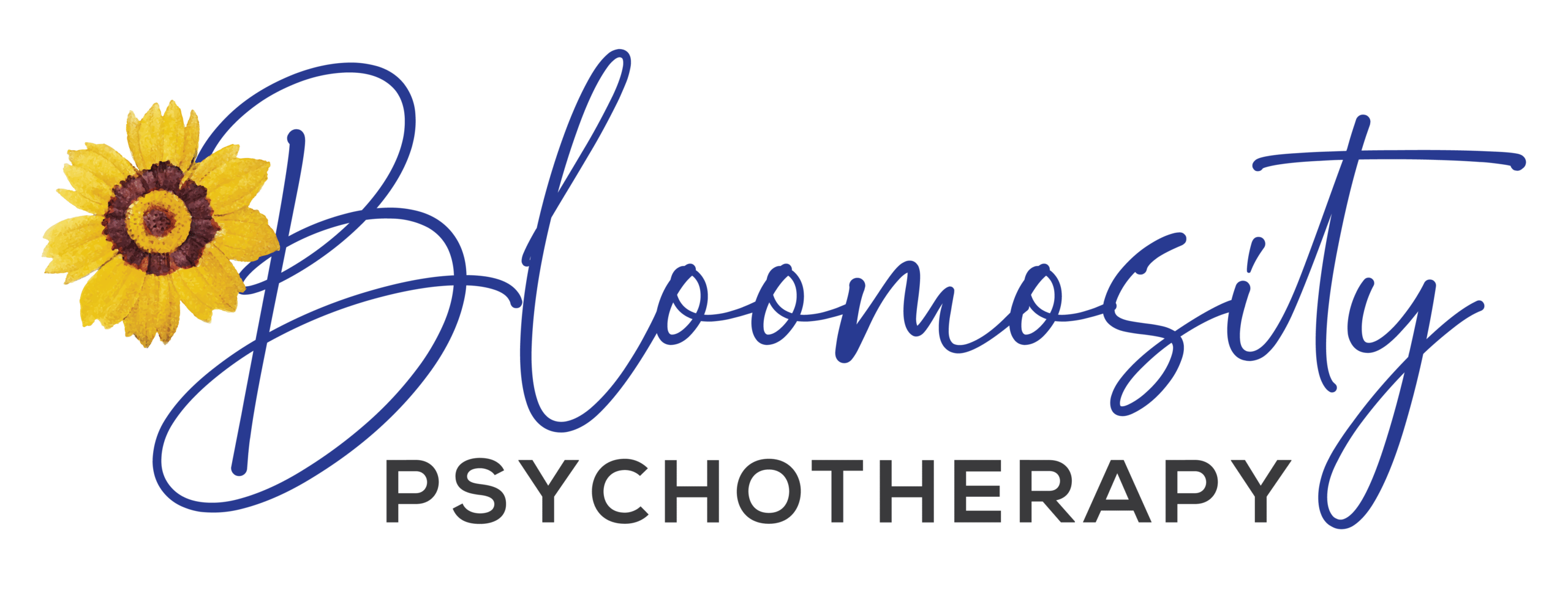Anxiety & Worry
How Bloomosity Can Help
Charlene takes a holistic mind and body approach to help you with anxiety and worry. With your consent, different therapeutic techniques can be used.
For example, Cognitive Behavioural Therapy (CBT) can help you gain insight into your thoughts and beliefs to transform them in a helpful way.
As well, mindfulness and relaxation techniques can be taught to help you calm your body and mind.
Another approach that may be used is based on Internal Family Systems (IFS). By using various techniques, such as guided meditation, you will gain insight into the part of you that carries anxiety. We will work with your anxious part to help it settle down and give it new direction.
What is Anxiety?
Anxiety is meant to capture attention and stimulate you to make necessary changes to protect what you care about. It’s a natural defense system of the body that signals you’re becoming stressed or alert to manage potential danger or threat.
Sometimes anxiety is beneficial since it can drive you to take some kind of action. But, when anxiety is persistent, it can create feelings of nervousness, apprehension, or self-doubt that may or may not be related to real life stressors.
Symptoms of Anxiety
Anxiety shows itself both in the mind and the body. Symptoms of anxiety are numerous and vary from person to person.
Some people may become more talkative, while others withdraw or self-isolate. Even people who seem outgoing, friendly, or fearless can have anxiety.
Often, your heart beats faster and your pulse rate increases. So does your blood pressure. Breathing accelerates and you may feel short of breath.
When parts of our brain become chronically over-active due to a perceived threat, it can also lead to:
- Restlessness, or feeling on edge
- Being easily fatigued
- Difficulty concentrating
- Irritability
- Muscle tension
- Sleep disturbance
- Headaches
- Digestive problems
- Intrusive or obsessive thoughts
Causes of Anxiety
Living in stressful or abusive environments may be a cause of anxiety. Modern life with its deadlines, fast-paced lifestyles, and keeping up with social media can also contribute to anxiety.
Both biology and environment determine if a person will have anxiety. In other words, anxious behavior can be inherited, learned, or both. For example, anxious parents may model anxious behavior to their children. This can instill that same behavior in their children.
Having a stressful upbringing or unresolved trauma can also increase a person’s chances of having anxiety. This is because anxiety becomes a way to anticipate danger and stay safe.
Benefits of Psychotherapy
When you work with a psychotherapist who focuses on anxiety, the aim will be to:
- help you help you uncover the underlying causes of your worries and fears
- learn how to relax
- look at situations in new, less fear provoking ways
- develop better coping and problem-solving skills.
